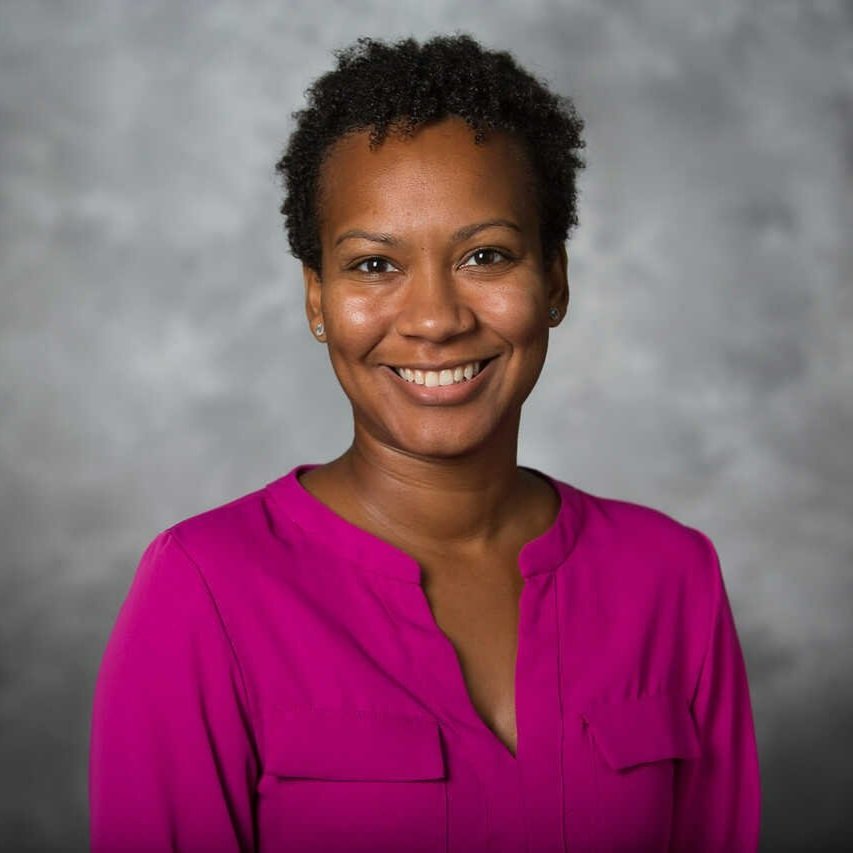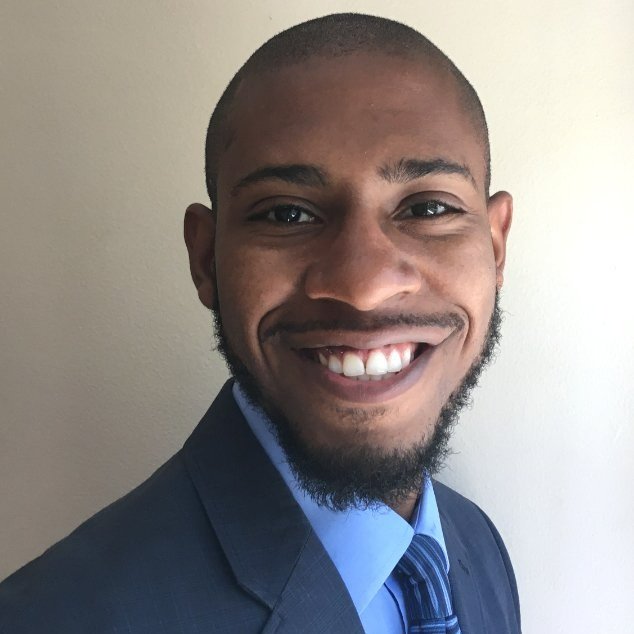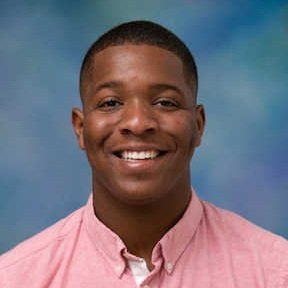SICSS-Howard/Mathematica Alumni Receive 2022 Excellence in Computational Social Science Research Awards
This blog part of the 2022 series “The Future of Computational Social Science is Black” about SICSS-Howard/Mathematica, the first Summer Institute in Computational Social Science held at a Historically Black College or University. To learn more about SICSS-H/M’s inaugural start, read last year’s blog “Welcome SICSS-Howard/Mathematica 2021” or our first blog “Uncovering new keys to countering anti-Black racism and inequity using computational social science.” If you are interested in applying to participate in SICSS-H/M 2023, check out our website.
Introducing the 2022 SICSS-Howard/Mathematica Excellence in Computational Social Science Research Fund
2022 marks the second year the Summer Institute in Computational Social Science sponsored by Howard University and Mathematica (SICSS-Howard/Mathematica) site awarded the Excellence in Computational Social Science Research to outstanding alumni. Support for SICSS-Howard/Mathematica participants did not end when the summer institute ended. In the final days of our inaugural institute, SICSS-H/M 2021, our financial sponsor Mathematica made a generous donation to create the inaugural SICSS-Howard/Mathematica Excellence in Computational Social Science Research Fund to support innovative research projects originating from our site. The first fund of its kind at a SICSS site, this Mathematica funding manifests our belief that financial barriers should not stand in the way of imminent discoveries.
Our Excellence in Computational Social Science Research fund is a unique aspect for a partner site. While we are following closely in the footsteps of the SICSS Umbrella organization, which provides team funds, we also wanted to try to provide funding for individuals as well. We are the first site to commit to continue to make these funds available for alumni as well as current SICSS-H/M participants as their careers progress. Over the course of the two weeks, participants brainstormed new project ideas, worked together, and used their burgeoning computational social science skills to dive deeper into their original research ideas.
Background and Excellence in Computational Social Science Research Award Selection Criteria
Applicants applied for awards between $200-$2,500 but could have received more if the project warranted it – particularly if the applications involved a large number of applicants from the SICSS-H/M community or created a common good (e.g. a database, dashboard, or tool). Applicants to SICSS-Umbrella funding have historically applied to use the money to run surveys, pay for cloud computing, websites, app-hosting costs, or purchase data or other research costs. SICSS-Howard/Mathematica alumni will use it for online experiments, to launch an online crowdsourcing platform, and to create a database (among other things).
To be eligible for this funding, individuals had to be alumni of our 2021 or 2022 site, and teams had to have at least two alumni if there were non-participants involved. A SICSS alumni also needed to be in a leadership role (e.g. first author of a project, or lead developer of a new tool). All research projects needed approval from the Institutional Review Board of the university or universities associated with the lead researchers on each team.
We received applications from both individuals and groups. This year’s applications also represented all the roles present at our institute: graduate students, postdoctoral researchers, and beginning faculty.
Proposals were evaluated according to several principles: 1) the importance of the project to computational social science; 2) the quality of the research design proposed; 3) the connection to the SICSS-H/M theme of countering anti-Black racism and inequity; and 4) benefit to the SICSS-H/M or broader SICSS community. Priority was given to projects following the SICSS-H/M theme in the form of open-access tools, data, or other resources that stood to benefit larger groups of people either within or outside the SICSS sites or projects that extended existing research or methodologies to include underrepresented groups.
Inaugural Excellence in Computational Social Science Research Award Winners
After carefully reviewing each application, two group projects and five individual projects were newly awarded. The SICSS-Howard/Mathematica Excellence in Computational Social Science Research Fund 2022 award winners are as follows:
SICSS-H/M Alumni Individual projects
Syntactic Variation in African American English
Kimberley Baxter, PhD student, Linguistics, New York University
"This means a lot to me and my research because it means I won't have to come out of pocket for certain equipment expenses, participant expenses, and other things. This is really having a lasting impact on my academic and professional journey, and I'm grateful for this.”
Good Mothering Guided by The Parenting Experts on YouTube: Analyzing the Expert Ideas and The Mothers’ Role in The Risk Society
Rumeysanur Erikli Dogan, PhD student, Sociology, Marmara University
“I am really happy that I got this award. SICSS Howard-Mathematica is a special platform for me. I participated in a number of programming workshops but this platform is the only one that relieved my anxiety about learning programming and gave me a beautiful sense of belonging.”
Agrarian Transformation and Search for Social Justice in Ethiopia
Getamesay Shiwenzu Nigussie, PhD student, Environmental Science, Addis Ababa University
”The research fund will support my study expenses and will give me a chance to present my research and interact with different professionals.”
When Do People See and Sanction Systemic Injustice? A Computational and Experimental Approach To Social Problems
Grace Flores-Robles, PhD student, Psychology, City University of New York Graduate Center
"I am grateful for the continued support from SICSS Howard-Mathematica. The funds will help provide fair compensation for my participants; so that I can recognize and value their contributions to research.”
Part C Early Intervention Referral and Eligibility Determination for Children with Diagnosed Medical Conditions
Asha Yadav, PhD candidate, Special Education and Clinical Sciences, University of Oregon
“This award would greatly help me overcome some of the challenges posed by the chosen research topic due to its interdisciplinary nature and expensive data collection process. In addition to advancing my career, it reinforces my commitment to tackling issues of equity and disproportionality in early childhood.”
SICSS-H/M Alumni Team projects
The Effect of Paid Family Leave on the Health of Immigrant Parents and Children of Immigrants in the United States
Nayantara Biswas, PhD candidate, Department of Economics, Clark University in Worcester, Massachusetts
Renee Clarke, DrPH student, Public Health, University of California, Berkeley
Susana Quiros, Assistant Teaching Professor, Public Health, University of Missouri
Bing-Jie Yen, PhD candidate, Health Behavior, Indiana University Bloomington
“As immigrant researchers, we owe a debt of gratitude to SICSS-Howard/Mathematica for believing in us. SICSS-Howard/Mathematica gave us a chance to connect and build relationships with other immigrant researchers who are respectful and committed to equity, inclusion, and to uplifting each other.”
Weighing the Options: Examining School Choice Reactions to Test Score and Discipline Disparities Among Black Parents
Janeria Easley, PhD Assistant Professor, African American Studies, Emory University
Todd Hall, PhD student, Education Policy, University of Virginia
Jeremy Prim, PhD candidate, Sociology, University of California, Davis
“We are so excited to receive the SICSS- H/M Excellence in Computational Social Science Research Award, which will provide us with an opportunity to enhance the global promotion of our study and enhance the user experience. Since this is a virtual study that aims to capture the experiences of Black folks around the globe, these enhancements are crucial to the success of our project.”
Until Next Time
The SICSS-H/M team wants to again congratulate our 2022 awardees. Additionally, to learn more about the 2021 awardees and their project updates, check out the “Funded Alumni Research in Progress” panel during SICSS-H/M 2022 Group 1, Group 2, Group 3, our blog about the 2021 funding, as well as their live Q&A with the 2022 SICSS-H/M Participants.
The Excellence in Computational Social Science Research Fund application will once again be available for SICSS-H/M participants and alumni to encourage engagement across alumni classes during the 2023 institute. We look forward to seeing more exceptional proposals!
For more information about SICSS-Howard/Mathematica, check out our website, follow us on Twitter, like us on Facebook, and join our email list. Apply now!
About the authors
Naniette H. Coleman is a PhD candidate in the Sociology Department at the University of California, Berkeley and a UC-National Lab In-Residence Graduate Fellow (Los Alamos National Lab). Her work sits at the intersection of the sociology of culture and organizations and focuses on cybersecurity, surveillance, and privacy in the US context. Specifically, Naniette’s research examines how organizations assess risk, make decisions, and respond to data breaches and organizational compliance with state, federal, and international privacy laws. Since 2016, Naniette has directed the AAC&U award-winning Interdisciplinary Research Group on Privacy/Coleman Research Lab at Berkeley. Naniette holds a Master of Public Administration with a specialization in Democracy, Politics, and Institutions from the Harvard Kennedy School of Government, and both an MA in Economics and a BA in Communication from the University at Buffalo, SUNY. A non-traditional student, Naniette’s prior professional experience includes local, state, and federal service, as well as work for two international organizations, and two universities.
Maddy Chen is a fourth-year undergraduate student studying Computer Science at the University of California, Berkeley. Maddy has served as a research assistant, project lead, and lab manager in the AAC&U award-winning, Berkeley based Interdisciplinary Research Group on Privacy/Coleman Research Lab. Maddy plans to pursue a career in software engineering after graduation.
Joy Zhou earned her undergraduate degree from University of California, Berkeley in Data Science and Economics. Joy served as a research assistant in the AAC&U award-winning, Berkeley based Interdisciplinary Research Group on Privacy/Coleman Research Lab.
Kristina Hiraishi is a fourth-year undergraduate at the University of California, Berkeley, pursuing a degree in Data Science with an emphasis in Economics. She formerly served as a research assistant, project lead, and co-lab manager in the AAC&U award-winning, Berkeley based Interdisciplinary Research Group on Privacy/Coleman Research Lab. Kristina served as an event Assistant for SICSS-Howard/Mathematica 2021 & 2022 focusing on participant experience, background research, writing, and editing. She plans to either pursue a career in privacy program management or enroll in an information management graduate program in the future.













